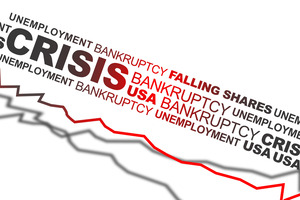Filing for bankruptcy is an excellent way to get back on track financially. It can wipe out some existing debts and allow you to get a fresh start. For some, bankruptcy is their only option and serves as the jumping off point to a brighter, more manageable financial future.
Unfortunately, bankruptcy cannot eliminate all types of debt. Too often, people with crushing student loan debt turn to bankruptcy to help them resolve their issues, only to learn that in most cases, they are still faced with their student loans, even after bankruptcy. It is possible for bankruptcy to help with other debts and free up money to put toward student loans, but if your financial crisis is primarily caused by student loans, bankruptcy can only help you so much.
If you want to learn more about the student loan debt crisis, check out this article from the Huffington Post.
There are many people who exit bankruptcy still weighed down by their student loan debt. In some cases, their financial woes are only slightly better than when they entered bankruptcy and their worries about paying their monthly student loan bill is as crushing as their concern for paying debts eliminated through bankruptcy. Those who filed for bankruptcy before their student loan payments kicked in find themselves facing a harsh financial reality that cannot be helped by bankruptcy.
If you are among the bankruptcy filers still facing student loan debt, there are a few important things you need to know:
Student Loan Debt is Not Eliminated
First and foremost, your student loan debt will survive your bankruptcy. This is the case whether you filed before student loan payments were due (repayment can be delayed through forbearance and other programs), or if you were making student loan payments when you entered bankruptcy. The exception is for those who have severe financial hardship, which in rare cases allows student loan debt to be included in a bankruptcy.
If you are just exiting your bankruptcy, it’s important to understand how important it is to pay your debts on time, including your student loan. Now is the time for you to show you are in control of your financial situation and pay your bills on time. Even if you must keep things tight and scrape together enough money to make your student loan payments every month, it is essential you make it a priority.
Defaulting on Your Student Loan Should Not Be an Option
Defaulting on your student loan now, after your bankruptcy is complete, means financial disaster. The goal of bankruptcy was to give you a fresh start. Defaulting gives student loan lenders the power to garnish your wages, levy your bank accounts, and destroy the credit you just now began rebuilding. If paying your monthly student loan payments is difficult, you must take action and try to create an arrangement that makes payments manageable.
Repayment plans can be confusing, especially if your student loan payments were on hold during bankruptcy. You have options, which is good, but those options can be confusing and lead to missing payments. Discussing your repayment options and negotiating a repayment plan for your student loan might require the assistance of an expert. We can help.
For more information about how student loan payments and bankruptcy work together, contact the Law Offices of Robert M. Geller at 813.254.5696.




























![Signs That You May Need to File Bankruptcy [Infographic]](https://djml3wkzi26ea.cloudfront.net/wp-content/uploads/2021/01/signs-chap7-v-chap13.jpg)
![How To File for Bankruptcy [Infographic]](https://djml3wkzi26ea.cloudfront.net/wp-content/uploads/2020/07/bankruptcy-steps-infographic-web.jpg)










